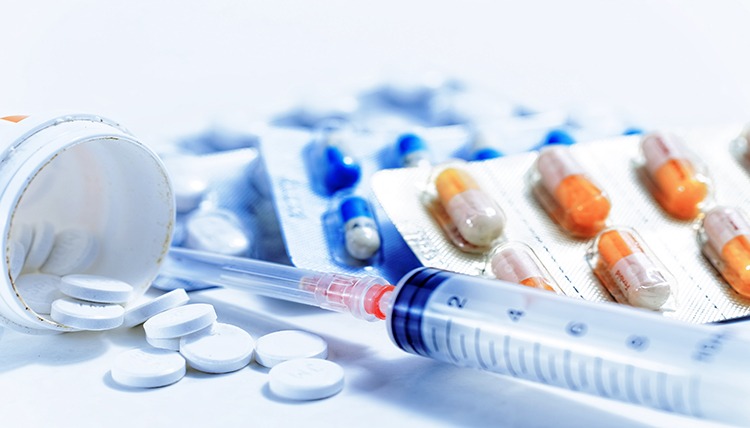HPAPI Mfg: The Market Drivers and CDMO/CMO Expansions
High-potency active pharmaceutical ingredient (HPAPI) manufacturing continues to be an active area of investment by CDMOs/CMOs. DCAT Value Chain Insights analyzes key market drivers, including for antibody drug conjugates and other oncology drugs, and rounds up recent expansions by CDMOs/CMOs.
Market drivers
Manufacturing of highly potent active pharmaceutical ingredients (HPAPIs) require manufacturing under high-containment conditions and specialized operator training with the level of containment based on occupational exposure limits. HPAPIs can include anti-cancer therapies, including antibody drug conjugates (ADCs), which contain small-molecule cytotoxic compounds or other potent compounds, such as hormonal therapies. Spending on cancer medicine, which includes small molecules, biologics, and emerging modalities, such as cell and gene therapies, rose to $164 billion globally in 2020 increasing at an average 14.3% over the past five years (2015 to 2020), according to a recent analysis by the IQVIA. Although still achieving double-digit growth, growth in the global oncology market is expected to slow an estimated $269 billion by 2025 as annual growth rates ease to about 10%, according to the IQVIA analysis. Growth in the oncology drug market for targeted small-molecules and niche modalities, such as ADCs consisting of a monoclonal antibody with an attached cytotoxic small molecules, is a key driver for investments in high-potency manufacturing.
CDMO/CMO expansions
Below is a roundup of some recent investments, announced in 2020 or 2021 by CDMOs/CMOs in HPAPI development and manufacturing.
Lonza. As part of a CHF-20 million ($22-million) expansion of its API manufacturing center in Nansha, China in laboratories and mid-scale manufacturing capacity, Lonza is adding laboratories develop and manufacture highly potent APIs. The expanded laboratories and manufacturing facilities at Nansha are expected to come on line between the first and third quarters of 2022.
Additionally, in December (December 2020), Lonza announced an investment to expand bioconjugation capacity at its site in Visp, Switzerland. The expansion will add two production suites in an existing bioconjugation facility for clinical and commercial supply. In addition, an extension to laboratory space will double analytical and process development capacity. The new capacity is expected to be fully operational from the first half of 2022.
In 2020/early 2021, Lonza opened two manufacturing suites for ADC–drug-linker (payload) manufacturing at its site in Visp.
Piramal Pharma Solutions. Piramal Pharma Solutions is proceeding with a $32-million expansion, at its site in Riverview, Michigan for API development and manufacturing. The expansion will consist of more than 25,000 square feet to include additional large-scale manufacturing, kilo labs and process development capacity. Facility design procedures includes controlled-room pressurizations with air locks, glovebox technology/contained systems for charging and discharging of potent compounds. The expansion is planned to be ready beginning in the summer of 2022.
Last year (January 2020), Piramal Pharma announced an investment of CAD$25 million ($19 million) to expand its facility in Aurora, Ontario, Canada with the addition of 10,500 square feet manufacturing space in a new wing for API manufacturing overall and including HPAPI manufacturing for producing potent compounds down to an OEL of 1 mcg/m3. It will also include filtration and drying capabilities. The expansion will further include two new reactor suites as well as a dedicated filter dryer room and a portable filter dryer. The expansion was slated to be completed and running by April 2021.
Carbogen Amcis. Carbogen Amcis, a Bubendorf, Switzerland-based CDMO of active pharmaceutical ingredients (APIs) and drug products, is proceeding with a CHF 15-million ($16-million) joint-funded agreement with an undisclosed Japan-based customer to expand its site Bubendorf, Switzerland. Carbogen Amcis will produce exclusively for the signatory customer a complex a HPAPI for a commercial ADC. The company expects to commence operations in the autumn of 2022.
MilliporeSigma. MilliporeSigma is investing a EUR 59-million ($65-million) to expand HPAPI and ADC manufacturing capacity at its facility near Madison, Wisconsin that will allow for large-scale manufacturing of potent compounds. The expansion, first announced in December 2020, includes a new 70,000-square-foot commercial building designed to handle single-digit nanogram occupational exposure limit materials and is slated to be completed by mid-2022. The facility will join the company’s facility in St. Louis, Missouri, which specializes in ADC bio-conjugation, APIs, excipients, and adjuvants manufacturing.
Sterling Pharma Solutions. Earlier this year (April 2021), Sterling Pharma Solutions, completed its acquisition of ADC Bio, including its 6,500-square-meter facility in Deeside, UK. The facility is fully equipped to support ADC research and development, including the specific containment capabilities that are necessary for handling potent cytotoxins. A multi-million-pound investment at the site will support the growth of the company’s ADC capabilities, which will include expanding and developing the facility’s technical services and analytical teams, and establishing cGMP bioconjugation/ADC manufacturing capabilities in 2022.
Seqens. Last year (August 2020), Seqens inaugurated a HPAPI manufacturing unit at its site in Villeneuve-La-Garenne, France with an investment of EUR 30 million ($35 million).
WuXi AppTec. STA Pharmaceutical, part of WuXi AppTec, opened in the first quarter of 2020 a HPAPI facility at the company’s site in Changzhou, China, its second HPAPI facility. WuXi STA’s first HPAPI facility, located at its Shanghai Jinshan site in China, supports process R&D and kilo-scale production. The newly added HPAPI facility in Changzhou includes HPAPI labs and a pilot plant (250-L–1,000-L reactors) capable of handling APIs with occupational exposure limits down to 0.05 µg/m3.
Ajinomoto Bio-Pharma Services. Ajinomoto Bio-Pharma Services, is expanding its small-molecule manufacturing capabilities with the addition of a new production facility in Visakhapatnam, India. Construction of the 8,500-square-meter facility began at the end of July 2020 and is expected to be completed in mid-2022. The new small-molecule manufacturing facility doubles the production capacity at the site to 310 cubic meters for APIs and intermediates and has dedicated equipment to manage Occupational Exposure Band Level 4 high-potency ingredients.
Helsinn. Last year (July 2020), Helsinn Advanced Synthesis SA (HAS) opened a dedicated anti-cancer bay at its manufacturing plant in Biasca, Switzerland for the development, analysis, and manufacturing of clinical and commercial anticancer APIs.
Novasep. Novasep is investing more than EUR 4 million ($4.8 million) to expand HPAPI manufacturing capacity at its site in Le Mans, France site.
Olon. Earlier this year (2021), Olon completed a new large-scale HPAPI production line at its facility in Rodano, Italy (Milan). The line strengthens the synthesis, finishing and drying section to manage acid-based reactions and can produce batches up to 250 kg, with a containment band of OEB 5, for either highly active or highly toxic products (occupational exposure limit of 0.1-1 micrograms/m3)
Cerobis-Pharma. In June (June 2021), Cerobis-Pharma, a Lugano, Switzerland-based CDMO received approval from Swissmedic, the national pharmaceutical regulatory agency in Switzerland, for the company’s new HPAPI production plant. The new production line is dedicated to highly active products with containment allowing occupational exposure limits up to 30 ng/m3 and enabling manufacture up to 35-kg batch size. The new plant features reactors up to 1000 L and a pressure-filter-dryer.
BSP Pharmaceuticals. BSP Pharmaceuticals, a Latina Scalo, Italy-based CDMO, announced an investment to expand drug-substance and drug-product manufacturing for high-potent and cytotoxic compounds. In June 2020, the company approved capital investments to expand its existing capacity for drug-substance and drug-product manufacturing for high-potent and cytotoxic compounds. The investment will consist of an expansion of approximately 30,000 square feet with the construction of new areas where an additional filling line for liquid/lyo vials and two additional conjugation areas will be installed. The new filling line is planned to be in operational by the second half of 2021 and will add capacity to produce up to 6.5 million vials annually. The two conjugation suites will be available starting from the end of 2021, and each one will add capacity for more than 420 kg monoclonal antibody (mAb) per annum. This expansion will more than triple current capacity for drug-substance manufacturing to 1,254 Kg mAb and will offer the possibility to scale up batch sizes.
Corden Pharma. In October 2020, CordenPharma completed the addition of new HPAPI laboratory at its facility in Boulder, Colorado. The new laboratory is capable of handling highly potent compounds with an occupational exposure limit as low as 1 ng/m3.
Flamma. Flamma SpA announced last year (June 2020) an expansion for a new R&D building at the company’s headquarters in Chignolo d’Isola, Bergamo, Italy. The R&D building will accommodate 50 additional employees and additional R&D and analytical development laboratories as well as offices and meeting rooms. In addition to these features, there will be a lab for high containment and special chemistries. The new R&D building in Italy will serve as a complement to the R&D work being done at Flamma USA in Malvern, Pennsylvania, located outside of Philadelphia.
Dipharma. Dipharma expanded its site in Mereto di Tomba, Italy to double the capacity of an existing pilot plant with an investment of EUR 2.7-million ($3.2-million). The expansion includes cleanrooms with pressure gradient-control in rooms and airlocks for personnel and material to allow for the production of HPAPI up to OEB4.
Heraeus. Heraeus Pharmaceutical Ingredients, part of Heraeus, a Hanau, Germany-based technology group, opened a new production line for platinum-based HPAPIs at its headquarters in Hanau. Building of the new production line began at the end of 2018 and was part of a multi-million-euro investment, as reported by the company.







